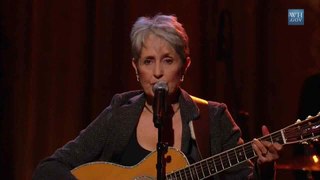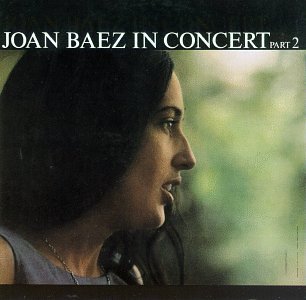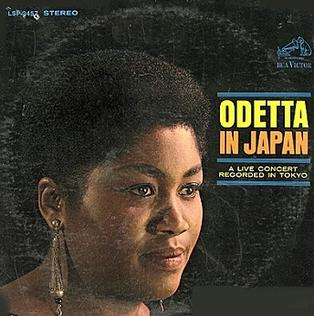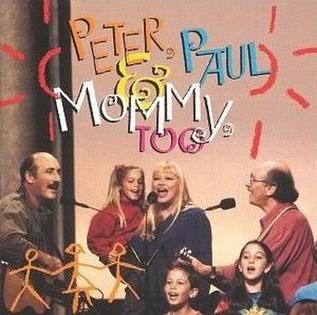
Peter Seeger was an American folk singer and social activist. He was the nephew of American war poet Alan Seeger, who died fighting with the French Foreign Legion during the Battle of the Somme in 1916.

Guy Hughes Carawan, Jr. was an American folk musician and musicologist. He served as music director and song leader for the Highlander Research and Education Center in New Market, Tennessee.

"We Shall Overcome" is a gospel song which became a protest song and a key anthem of the Civil Rights Movement. The song is most commonly attributed as being lyrically descended from "I'll Overcome Some Day", a hymn by Charles Albert Tindley that was first published in 1900.

Joan Baez in Concert, Part 2 was a second installment of live material, recorded during Joan Baez' concert tours of early 1963. It peaked at number 7 on the Billboard Pop Albums chart.

We Shall Overcome: The Seeger Sessions is the fourteenth studio album by Bruce Springsteen. It peaked at number three on the Billboard 200 and won the Grammy Award for Best Traditional Folk Album at the 49th Grammy Awards.

The Bruce Springsteen with The Seeger Sessions Band Tour, afterward sometimes referred to simply as the Sessions Band Tour, was a 2006 concert tour featuring Bruce Springsteen and The Sessions Band playing what was billed as "An all-new evening of gospel, folk, and blues", otherwise seen as a form of big band folk music. The tour was an outgrowth of the approach taken on Springsteen's We Shall Overcome: The Seeger Sessions album, which featured folk music songs written or made popular by activist folk musician Pete Seeger, but taken to an even greater extent.

Carry It On is a 1971 album by Joan Baez, a soundtrack album to the documentary film of the same name. Its title is taken from one of its songs, "Carry It On", which was written by Gil Turner.

"Where Have All the Flowers Gone?" is a modern folk-style song. The melody and the first three verses were written by Pete Seeger in 1955 and published in Sing Out! magazine. Additional verses were added in May 1960 by Joe Hickerson, who turned it into a circular song. Its rhetorical "where?" and meditation on death place the song in the ubi sunt tradition. In 2010, the New Statesman listed it as one of the "Top 20 Political Songs".
Zilphia Horton was an American musician, community organizer, educator, Civil Rights activist, and folklorist. She is best known for her work with her husband Myles Horton at the Highlander Folk School where she is generally credited with turning such songs as "We Shall Overcome", "We Shall Not Be Moved," and "This Little Light of Mine" from hymns into protest songs of the Civil Rights Movement.
"Mary Don't You Weep" is a Spiritual that originates from before the American Civil War – thus it is what scholars call a "slave song," "a label that describes their origins among the enslaved," and it contains "coded messages of hope and resistance." It is one of the most important of Negro spirituals.

Odetta in Japan is a live album by American folk singer Odetta, released in 1966. It was her final album for RCA Victor.

Portrait of Joan Baez is a 1967 Joan Baez compilation album, released in the UK. It includes material from her early 1960s traditional folk and her Bob Dylan and Phil Ochs covers. The album is mono and was released on Vinyl in the UK. It features a mix of studio and live recordings.
The Sessions Band is an American musical group that has periodically recorded and toured with American rock singer-songwriter Bruce Springsteen in various formations since 1997.

James Bradford Brown is an American film director, primarily known for his work in documentary film. He has won four Emmys, most recently for Pete Seeger: The Power of Song. He has directed and produced four feature documentaries that received theatrical distribution. He heads Jim Brown Productions, LLC and Ginger Group Productions, Inc., production companies specializing in cultural and social documentaries and music concerts.

The Montreal Tapes: Liberation Music Orchestra is a live album by the American jazz bassist Charlie Haden's Liberation Music Orchestra recorded in 1989 at the Montreal International Jazz Festival and released on the Verve label.

The discography of Pete Seeger, an American folk singer, consists of 52 studio albums, 23 compilation albums, 22 live albums, and 31 singles. Seeger's musical career started in 1940 when he joined The Almanac Singers. He stayed with the group for two years until he was drafted into the Army. After the end of World War II, Seeger helped found an organization known as People's Songs, along with the influential folk music magazine People's Songs Bulletin. He published several singles and a studio album with the magazine. Seeger would play at People's Songs events, called hootenannies, until the organization folded in 1949. After People's Songs, Seeger and another former member of the Almanacs, Lee Hays, founded the Weavers, who achieved commercial success. In 1952, The Weavers went on hiatus due to the Red Scare; Seeger and Hays both had Communist ties. After the demise of the Weavers, Seeger released a solo album, American Folk Songs for Children, in 1953 on Folkways Records. He continued to release albums on Folkways until he was signed to Capitol in 1961.

Peter, Paul & Mommy, Too, released on Warner Bros. in 1993, is a children's album by the trio Peter, Paul and Mary. It was recorded on October 31 and November 1, 1992 at the Brooklyn Academy of Music's Harvey Theater. The album follows from the first children's album they released in 1969, Peter, Paul and Mommy.

We Shall Overcome is a 1963 album by Pete Seeger. It was recorded live at his concert at Carnegie Hall, New York City, on June 8, 1963, and was released by Columbia Records.

We Shall Overcome is an album by American politician Bernie Sanders, recorded and released in 1987. The album combined folk music and spoken word, narrated by Sanders. He was the mayor of Burlington, Vermont, at the time of the album's release. The album was remastered and rereleased in 2014 and gained wide exposure during Sanders' presidential campaign.

If I Had a Hammer: Songs of Hope & Struggle is a 1998 compilation album by Pete Seeger and was released on Smithsonian Folkways as SFW40096.
















